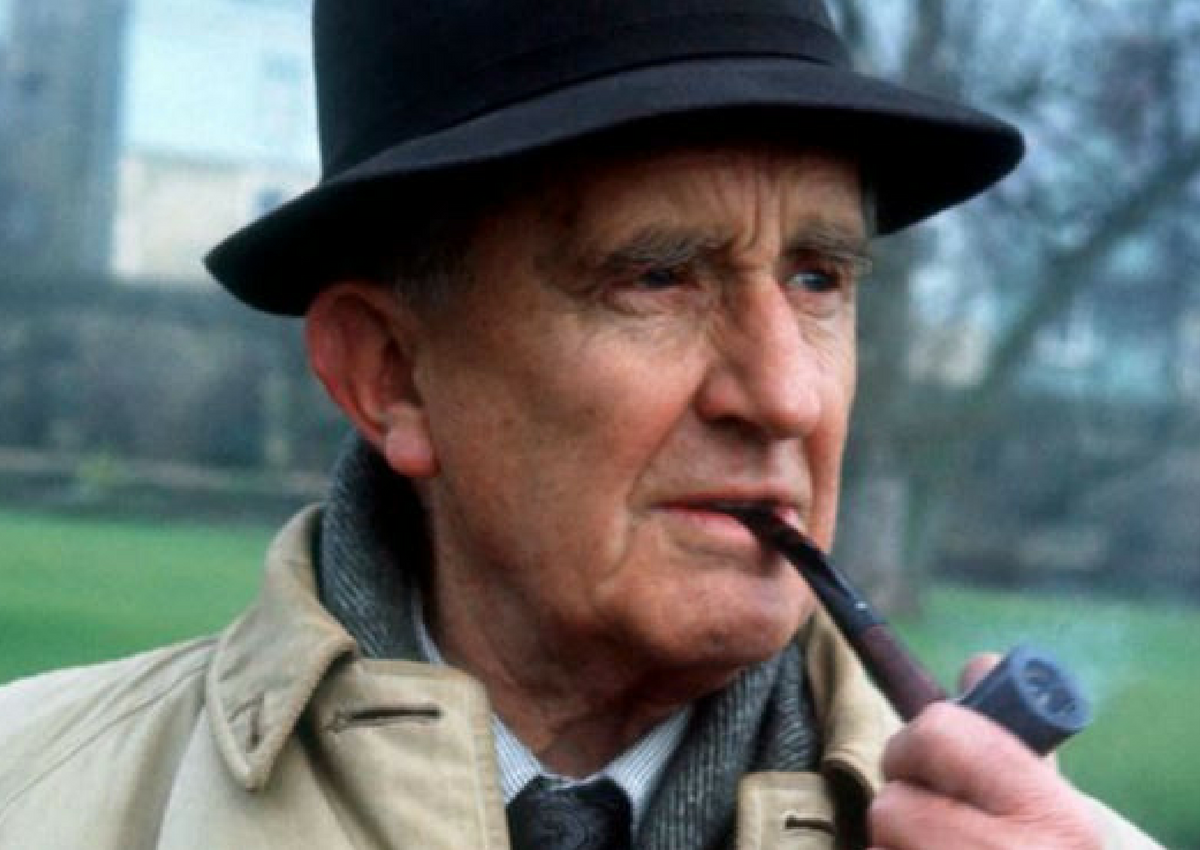
Pop Culture | Books | Retro
9 Facts About J.R.R. Tolkien That Sounds Less Believable Than His Books

John Ronald Reuel Tolkien is an author that needs no introduction. The late author of novels such as The Hobbit, The Lord of the Rings, and The Silmarillion, he bears the distinction of not only being the father of the Fantasy genre, but also the creator of a book whose number of translations worldwide is second only to The Bible. Between the books and the massively successful Peter Jackson films based on them, chances are you know at least a bit about J.R.R. Tolkien, but do you know any of these interesting facts?
He was quite the lecturer

Tolkien was anything but your stereotypical stuffy British lecturer. He went to parties dressed as a polar bear, chased a neighbor with an axe, and was known to hand shopkeepers his false teeth as payment. One of his students famously said "He could turn a lecture room into a mead hall."
His childhood fears made it into his books

As a child, Tolkien grew up in South Africa, which at the time remained a British colony. One day, he was bitten by a poisonous spider and had to be rushed to the hospital. While he survived, he developed a lifelong fear of spiders, leading to the creation of the Spiders of Mirkwood Forest in The Hobbit and Shelob in The Lord of the Rings.
So did plenty of languages he made up or revived

It's well-known that Tolkien invented the entire Elvish language for use in The Hobbit and The Lord of the Rings, but it was far from the only one that he created. An avid linguist, he was fascinated with not only inventing new languages, but even reviving long-dead ones like Medieval Welsh and Lombardic; languages that hadn't been used in over a thousand years.
The facts just get more interesting from here...
He wrote more than just fantasy

Tolkien was fascinated with ancient languages and translating them, particularly Anglo-Saxon and Norse. As a result, he went on to write some of the most definitive translations of texts like Beowulf and Sir Gawain and the Green Knight, well ahead of his Middle-Earth books.
He wasn't entirely comfortable with his success

A linguist first and a writer second, Tolkien intended for The Lord of the Rings to be a 21st-Century myth, not a best-seller. As a result, the massive success of the series caught him completely off guard. He actually believed most of its fans couldn't truly grasp the scale and scope of his work, and famously rejected numerous attempted movie and TV adaptations.
He had a super tumultuous friendship with C.S. Lewis

Tolkien and the Chronicles of Narnia author were drinking buddies and longtime friends, often giving each other ideas for their respective stories. Tolkien's wife was apparently jealous of their friendship, and he was actually the one who convinced Lewis to convert back to Christianity. However, they drifted apart thanks to Lewis' anti-Catholicism leanings and scandalous personal life.
World War I had a profound impact on him and his writing

Like many British men at the outset of the 1900s, Tolkien served in the First World War. Specifically, he served in the 11th Service Battalion of the British Expeditionary Force in France, and participated in some of the bloodiest battles of the war, including the Battle of the Somme. His experiences made their way into his books; the ashen fields of Mordor are very much an allegory for cities attacked with chlorine gas, and Sam and Frodo's strained march through the dead marshes are comparable to Tolkien's time in the trenches.
The Nazis loved his work, but he hated the Nazis

The Nazis (and Hitler especially) were big fans of old Germanic and Norse folk tales, whose heroes they saw as reflecting their vision of perfect, Aryan ideals. Tolkien's translations of many of these were valued by the Reich, but he made sure everyone knew his stance on them. He forbade The Hobbit from being translated into German, and wrote several scathing letters on the subject, including one which states;
"I have in this War a burning private grudge—which would probably make me a better soldier at 49 than I was at 22: against that ruddy little ignoramus Adolf Hitler ... Ruining, perverting, misapplying, and making for ever accursed, that noble northern spirit, a supreme contribution to Europe, which I have ever loved, and tried to present in its true light."
He was a romantic until the end

He was enamored with his wife Edith since he was 16, and pined after her for years when they were forbidden from being together due to her being a Protestant. Finally, at 21 (and her at 24), he convinced her to break off her upcoming marriage, convert to Catholicism, and marry him instead. They were together for the rest of their lives, and their tombstone has the names "Beren" and "Luthien" engraved next to their own, after the star-crossed lovers of The Silmarillion.



